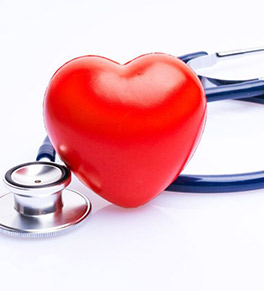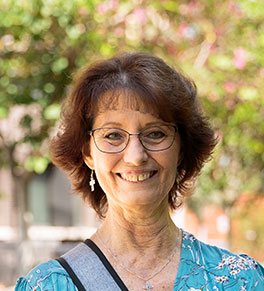
Tachycardia
Tachycardia is a condition that causes your heart to beat very fast, over 100 beats per minute. Let our experts get your heart rate under control.
Our specialists can pinpoint other conditions that may be causing your tachycardia and treat them effectively too.
Signs and symptoms of tachycardia
If you’ve ever done strenuous exercise that made your heart race, you know what tachycardia feels like. Tachycardia can originate from different areas of your heart. Different areas can create different symptoms.
In serious cases of tachycardia that don’t involve exercise, an elevated heart rate becomes your resting rate.
This list of symptoms ranges from mild to severe:
- Dizziness
- Lightheadedness
- Rapid heartbeat or palpitations
- Chest pain or pressure
- Shortness of breath
- Unconsciousness
- Cardiac arrest
When to seek care for tachycardia
If you have heart-related symptoms, it’s important to take them seriously, especially palpitations, chest pain and trouble breathing. If your symptoms are mild, see your doctor. Otherwise, go to the emergency room.
Types of tachycardia
There are three types of tachycardia.
Supraventricular tachycardia
Some people with supraventricular tachycardia have no symptoms. If you have a family history of heart problems, make sure to get evaluated regularly.
Supraventricular tachycardia happens when the upper chambers of the heart (the atria) fire abnormally, interfering with electrical signals. When your heart beats rapidly, it doesn’t have enough time to fill before it contracts. This compromises blood flow to your entire body.
Sometimes there is no known cause, but causes may include:
- Heart conditions, including coronary artery disease, heart valve disease or other underlying illnesses
- Substance abuse, including alcohol, drugs and smoking
- Side effects from certain medications
- Other health conditions, including thyroid disease, lung disease, diabetes and others
- Electrolyte imbalance from dehydration
Ventricular tachycardia
Ventricular tachycardia starts in the lower chambers of your heart (the ventricles).
It can be life-threatening and requires a quick diagnosis and treatment.
Ventricular tachycardia is usually caused by these disorders and other factors that interfere with the heart's normal electrical activity:
- Cardiomyopathy
- Sarcoidosis (an inflammatory disease)
- Lack of oxygen to the heart
- Medications
Sinus tachycardia
Your heart has its own natural pacemaker called the sinoatrial node. The sinoatrial (SA) node is a cluster of special cells that generate the heart’s electricity. When it sends out electrical signals faster than usual, your heart beats quickly, but properly.
Although sinus tachycardia is often considered mild, it can point to another co-occurring condition, including:
- Anemia (low blood count)
- Increased thyroid activity
- Heart muscle damage from heart attack or heart failure
- Hemorrhage
The causes of sinus tachycardia are often the body's response to common situations, such as:
- Fever
- Anxiety
- Some medicinal and street drugs
- Severe emotional distress
- Fright
- Strenuous exercise
Tachycardia diagnosis at UCI Health
Our cardiologists and electrophysiologists are experts at interpreting EKG results. We diagnose tachycardia and many other conditions influencing your heart health. Our goal is to determine the cause of your tachycardia, help you feel better and improve your overall health.
Tachycardia treatment at UCI Health
Our approach to your care is inclusive, compassionate and multidisciplinary.
As an academic medical center, we have the advantage of a large, robust infrastructure. This allows for easy collaboration across medical specialties. Your treatment plan and access to the right doctors will be seamless and well-coordinated.
Sometimes, tachycardia patients come to us via our emergency room. You can always contact UCI Health directly for an appointment at our Arrhythmia Care Program.
Discuss treatment options with your doctor after all your evaluations are complete.
Why choose UCI Health for tachycardia
Advanced heart mapping
Tachycardia is a type of arrhythmia, an irregular heartbeat. One of the most important aspects of arrhythmia care is accurately diagnosing the type and location of an arrhythmia.
Advanced cardiac mapping technology at UCI Health allows us to pinpoint the exact location of your arrhythmia down to the millimeter. This means your doctors can isolate and name the type of tachycardia you have in order to treat it properly.
Clinical trials for arrhythmias
As the only academic health system in Orange County, UCI Health leads and participates in clinical trials for arrhythmias. These trials look at new, effective ways to treat or even cure arrhythmias. If you qualify, you may have access to therapies that are not yet widely available.
UCI Health offers the full range of procedures and devices for patients with severe heart problems
We are Orange County’s most advanced and comprehensive cardiovascular disease services program. Our care ranges from implants, critical life support, and heart/lung failure to reducing heart attack risks with life-changing health coaching.
No matter what type of cardiac event you’re dealing with, we will help you improve your quality of life.

Tachycardia conditions vary and need the right treatment
You can get comprehensive tachycardia care at UCI Health.
Call 714-456-6699 to get an expert evaluation if you have symptoms, or

Find a Cardiology Clinical Trial
Talk to your doctor to see if a cardiology clinical trial is right for you.
Featured Blog Posts

4 tips to improving heart health
Making basic lifestyle changes, even small ones, can dramatically lower your risk for heart disease, the No. 1 cause of death for U.S. men and women.

Fear of falling makes falls more likely

First UCI Health LVAD patient gets heart transplant
Just 18 months after Elizabeth Vayssie received a life-saving implant to pump blood through her body, she got the call that every heart-failure patient hopes for: “We have a heart for you.” Vayssie is now the third UCI Health patient kept alive by a left ventricular assist device (LVAD) to survive long enough to undergo a heart transplant.




